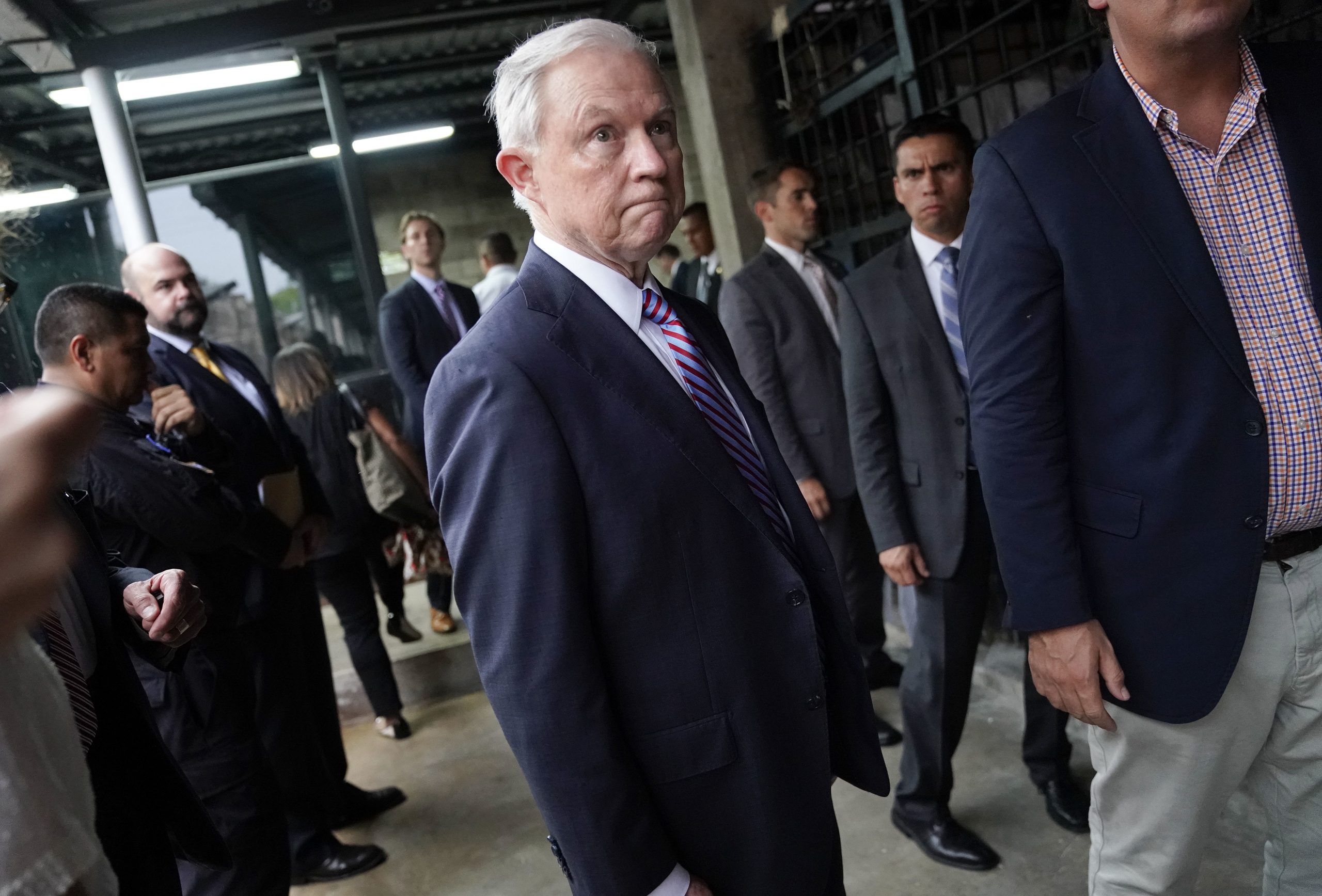Hello, readers. “Good guys with guns” have accidentally shot them in more than two dozen schools. GOP officials turn up the heat on banks that impose conditions on gun clients. Plus, the results of Jeff Sessions’s crackdown on gun crime come into focus.
Receive this daily news briefing by email every morning. Sign up here.
WHAT TO KNOW TODAY
A GOP-appointed SEC commissioner slammed bankers who got tough with gun clients. At a meeting in late April, the Securities and Exchange Commissioner Michael Piwowar chastised Citigroup for its post-Parkland decision to impose restrictions on gun retailers with which it does business. Ethics experts interviewed by Bloomberg News were divided on whether Piwowar’s warning was within his purview or stepped beyond his authority as a financial regulator. Both Citi and Bank of America, which enacted its own more stringent requirements for gun industry clients, have encountered pushback from Republican legislators.
Adults carrying guns on school campuses have accidentally fired those guns at least 30 times over the past four years. Using data from the Gun Violence Archive, the Associated Press counted up how often armed parents, teachers, and law enforcement officials have been responsible for accidental discharges at schools since 2014. (Since schools are not required to disclose these incidents, there are likely many more that went unreported by the media, whose reports GVA relies upon.) Within 48 hours in March, there were three such incidents alone: A school police officer in Alexandria, Virginia; a teacher in California; and a sheriff in Michigan, who left a loaded gun in a middle school locker room, where a sixth-grader found it. The story comes amid a renewed push to arm teachers after Parkland, but as the Alexandria superintendent put it: “If this can happen with a highly trained police officer, why would we give teachers guns?”
Shootings have spiked in Chicago alongside spring temperatures. At least 81 people were shot in the city last week, USA Today reports. On Saturday, a 12-year-old boy was among the wounded. On Sunday, four people — all men between the ages of 26 and 46 — were fatally shot, and nine were wounded. The jump represents a sharp reversal of the downward trend that recent Bulletin items have noted: Through March, the city had seen shootings fall 25 percent, compared to the same time period in 2017.
A highway sniper allegedly inspired by past mass shooters shot two people in Georgia. On Friday, Rex Harbour, 26, fired 17 bullets along a stretch of State Route 365, injuring two people and striking seven cars. When police found him, Harbour sped away and shot himself in the head, causing his car to veer off the road. Harbour, who was armed with a small personal arsenal (three 9 mm handguns, a .22-caliber rifle, a 12-gauge shotgun, and thousands of rounds of ammunition), had no criminal history, nor any obvious affiliation with a hate group, but at his home, police found papers that they say suggested Harbour “idolized” the Parkland shooter.
President Trump’s speech to the NRA convention drew criticism from US allies. In his remarks, Trump used stabbings in the United Kingdom as an argument against gun control, likening a hospital in London to a “war zone” and saying “they don’t have guns, they have knives and instead there’s blood all over the floors of this hospital.” He then made stabbing motions. A former British Cabinet minister tweeted, “There isn’t a person in the whole world…who believes the way to reduce our murder rate is to make it easier to get guns.” Referring to the 2015 terrorist attack in Paris, Trump described the deaths of victims killed in a concert hall. “[The terrorists] took their time and gunned them down one by one,” then made gestures to mimic the shooting. Former French President Francois Hollande called the comment “obscene” and current President Emmanuel Macron’s administration released a statement saying: “The free flow of arms within society does not constitute a shield against terrorist attacks. It can instead facilitate the planning of this type of attack.”
CONTEXTUALIZER
The Justice Department’s gun-violence reduction efforts under Jeff Sessions have nabbed mostly low-level gun offenders. The New York Times spoke with law enforcement officials who noted that cases that were once considered to be within state or local law enforcement’s jurisdiction (like those concerning illegal possession by individuals) have garnered more federal interest since Sessions released a directive instructing all 94 U.S. Attorneys to partner with local law enforcement agencies to identify the people driving gun violence in communities, and use federal statutes — which usually result in harsher punishments — to prosecute them.
Last year, The Trace found that Sessions’ get-tough tactics had similar results when he served as U.S. Attorney in the Southern District of Alabama in the 1990s. There, his office sometimes added felon-in-possession charges to otherwise nonviolent crimes, substantially lengthening a defendant’s prison sentence. One lawyer who often faced Sessions in court told our correspondent that Sessions was “especially draconian in seeking high sentences and dragging a lot of people in that probably didn’t need to be in federal court.” That prosecutorial style is now official departmental guidance in Sessions’ DOJ.

